Fathers and Sons Training
A powerful father- son bonding experience through an ancient tradition tailored to all ages.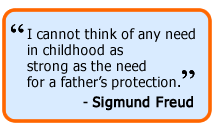
Powerful because:
 training works directly with the body training works directly with the body
 archetypal: for centuries men have taught their sons how to fight archetypal: for centuries men have taught their sons how to fight
Other benefits include:
 self defence self defence
 core strength, grounding, fitness & flexibility through traditional, seldom taught exercises core strength, grounding, fitness & flexibility through traditional, seldom taught exercises
 learning about your body learning about your body
 classical strategy and self growth classical strategy and self growth
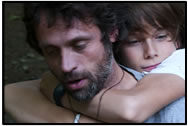 Training includes: Training includes:
 exercises & games specifically for adults & children training together exercises & games specifically for adults & children training together
 striking, locking & trips all taught in a way that benefits adults & children striking, locking & trips all taught in a way that benefits adults & children
 exercises in stillness & meditation appropriate for both adults & children exercises in stillness & meditation appropriate for both adults & children
Training outdoors when weather permits or at your home or a training hall.
More about what this training offers
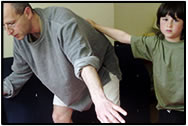 Drug abuse, delinquency, bullying, apathy... Drug abuse, delinquency, bullying, apathy...
The profound changes to our social structure have deeply undermined our youth's sense of identity and stability. Boys today thirst for answers:
Who am I?
What are my values?
Who can I go to for protection and who is it my duty to protect?
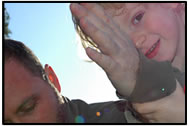 The waters that used to quench this thirst are no longer so abundant. The safe and caring community is seldom a reality and the traditional family unit has been badly battered with at least father spending very little time parenting and increasingly mother at work as well. This is problematic because the thirst is compelling and boys will seek answers. And not always in safe places. The waters that used to quench this thirst are no longer so abundant. The safe and caring community is seldom a reality and the traditional family unit has been badly battered with at least father spending very little time parenting and increasingly mother at work as well. This is problematic because the thirst is compelling and boys will seek answers. And not always in safe places.
It seems that other times and other cultures, despite their own problems were at least effective 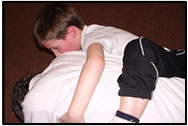 in fostering a strong sense of identity; disaffected youth seems to be an issue peculiar to this time and this culture. in fostering a strong sense of identity; disaffected youth seems to be an issue peculiar to this time and this culture.
Pre industrial revolution men taught their sons the family trade, or farmed with them and not so long ago fathers taught their sons how to hunt, fix cars, fish and the like.
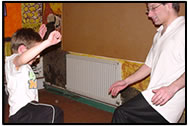 In the Far East, fathers would spend many thousands of hours teaching the family's martial art to their sons. This was a space where physical exercise, strategic insight, family history and cultural heritage could be transmitted with parental care, love and intimacy. At an even more subtle level, it was an arena in which boys could mirror and emulate a mature adult, acting at his very best. In the Far East, fathers would spend many thousands of hours teaching the family's martial art to their sons. This was a space where physical exercise, strategic insight, family history and cultural heritage could be transmitted with parental care, love and intimacy. At an even more subtle level, it was an arena in which boys could mirror and emulate a mature adult, acting at his very best. 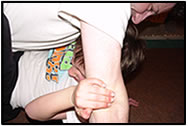 This kind of experience developed a type of highly cultivated man, a man, as famous for his aesthetic awareness, gentleness, courage and sense of responsibility as he was for his wise and ethical leadership - a gentleman in the fullest sense of the word. This kind of experience developed a type of highly cultivated man, a man, as famous for his aesthetic awareness, gentleness, courage and sense of responsibility as he was for his wise and ethical leadership - a gentleman in the fullest sense of the word.
In the Chinese canon there are many references to fathers or mentors training boys, for example Sima Yi, a great strategist of the three kingdoms period teaches his young son sword play whilst discussing political strategy and ethics with him (his son went on to unite China and end 100 years of civil war)*.
I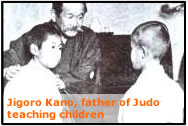 nterestingly such scenes resonate with images of Chiron instructing the young Achilles in the arts of hunting, healing and fighting. The emotional content of these classical scenes is reflected in popular culture: films like The Karate Kid reveal martial arts training as universal expressions of mentoring and fathering, motifs essential to the healthy development of the mature male psyche. nterestingly such scenes resonate with images of Chiron instructing the young Achilles in the arts of hunting, healing and fighting. The emotional content of these classical scenes is reflected in popular culture: films like The Karate Kid reveal martial arts training as universal expressions of mentoring and fathering, motifs essential to the healthy development of the mature male psyche.
For younger boys, our training provides the direct experience of father's 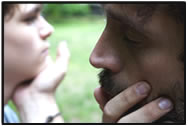 extraordinary strength directed exclusively to their support, development and protection, this is extremely enjoyable and powerful, and provides a physical sense of safety and security difficult to achieve in any other way. extraordinary strength directed exclusively to their support, development and protection, this is extremely enjoyable and powerful, and provides a physical sense of safety and security difficult to achieve in any other way.
For older boys, the training we offer provides a focused space to experience the hidden world of men training physically, sharing camaraderie and philosophical insight, perhaps going at least a little way to addressing our cultural problem which Bly* refers to as:
"Not enough father"
* Luo Guanzhong -Translation Roberts, M. (1995) Three Kingdoms. Beijing: Foreign Languages Press
* Bly, R. (1996) The Sibling Society. London: Hamish Hamilton
Other private training
|





 Training includes:
Training includes: Drug abuse, delinquency, bullying, apathy...
Drug abuse, delinquency, bullying, apathy... The waters that used to quench this thirst are no longer so abundant. The safe and caring community is seldom a reality and the traditional family unit has been badly battered with at least father spending very little time parenting and increasingly mother at work as well. This is problematic because the thirst is compelling and boys will seek answers. And not always in safe places.
The waters that used to quench this thirst are no longer so abundant. The safe and caring community is seldom a reality and the traditional family unit has been badly battered with at least father spending very little time parenting and increasingly mother at work as well. This is problematic because the thirst is compelling and boys will seek answers. And not always in safe places. in fostering a strong sense of identity; disaffected youth seems to be an issue peculiar to this time and this culture.
in fostering a strong sense of identity; disaffected youth seems to be an issue peculiar to this time and this culture. In the Far East, fathers would spend many thousands of hours teaching the family's martial art to their sons. This was a space where physical exercise, strategic insight, family history and cultural heritage could be transmitted with parental care, love and intimacy. At an even more subtle level, it was an arena in which boys could mirror and emulate a mature adult, acting at his very best.
In the Far East, fathers would spend many thousands of hours teaching the family's martial art to their sons. This was a space where physical exercise, strategic insight, family history and cultural heritage could be transmitted with parental care, love and intimacy. At an even more subtle level, it was an arena in which boys could mirror and emulate a mature adult, acting at his very best.  This kind of experience developed a type of highly cultivated man, a man, as famous for his aesthetic awareness, gentleness, courage and sense of responsibility as he was for his wise and ethical leadership - a gentleman in the fullest sense of the word.
This kind of experience developed a type of highly cultivated man, a man, as famous for his aesthetic awareness, gentleness, courage and sense of responsibility as he was for his wise and ethical leadership - a gentleman in the fullest sense of the word. nterestingly such scenes resonate with images of Chiron instructing the young Achilles in the arts of hunting, healing and fighting. The emotional content of these classical scenes is reflected in popular culture: films like The Karate Kid reveal martial arts training as universal expressions of mentoring and fathering, motifs essential to the healthy development of the mature male psyche.
nterestingly such scenes resonate with images of Chiron instructing the young Achilles in the arts of hunting, healing and fighting. The emotional content of these classical scenes is reflected in popular culture: films like The Karate Kid reveal martial arts training as universal expressions of mentoring and fathering, motifs essential to the healthy development of the mature male psyche. extraordinary strength directed exclusively to their support, development and protection, this is extremely enjoyable and powerful, and provides a physical sense of safety and security difficult to achieve in any other way.
extraordinary strength directed exclusively to their support, development and protection, this is extremely enjoyable and powerful, and provides a physical sense of safety and security difficult to achieve in any other way.